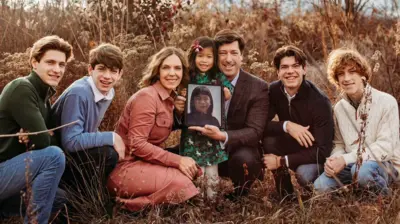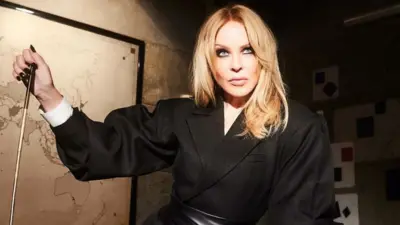We've updated our Privacy and Cookies Policy
We've made some important changes to our Privacy and Cookies Policy and we want you to know what this means for you and your data.
Court rules Josef Fritzl can move to normal prison
Image source, Reuters
- Author, Bethany Bell
- Role, ±«Óătv News
- Reporting from Vienna
A court in Austria has ruled that the country’s most notorious criminal, Josef Fritzl, can be moved to a normal prison.
Fritzl, who has since changed his name, kept his daughter captive for 24 years in a dungeon he built beneath his home, and fathered seven children with her.
He has been held in an institution for mentally disturbed prisoners since 2009, after his conviction for rape, enslavement, incest and murder by neglect of his newborn son.
The statement from the court in Krems an der Donau said Fritzl, 89, no longer posed a danger that required him to be kept in a prison psychiatric unit.
It said that due to his "progressive dementia" and physical frailty, he was "no longer likely to commit a criminal offence with serious consequences".
In theory, the transfer to normal prison could pave the way for his eventual release. His lawyer, Astrid Wagner, has said she would apply for this, a year after his transfer.
However the court statement said a release or a conditional release from prison would not be possible, for "special preventative reasons".
Given Fritzl’s "unprecedented criminal energy", the statement said such a step was not to be expected.
The ruling can be appealed.
The Fritzl case, which emerged in 2008 in the town of Amstetten west of Vienna, has been described as one of the worst in Austria's criminal history.
Fritzl lived a double life. A qualified electrician, he imprisoned his daughter Elisabeth in his cellar in 1984. He raped her repeatedly and had seven children with her.
Three of the children lived in the cellar with Elisabeth, trapped in windowless, soundproofed rooms behind a reinforced concrete door, where they never saw the light of day.
Fritzl raised three others in the house above with his wife Rosemarie, who was unaware of the crimes.
A seventh child died at birth. Fritzl was said to have burned the body in an incinerator and scattered the ashes in the garden of his house.
The case came to light when the eldest of the children, Kerstin, became seriously ill and had to be taken out of the cellar to hospital.
Fritzl initially denied the murder and slavery counts but reversed his plea after watching videotaped testimony from his daughter in court.
Elisabeth Fritzl and her children have taken on new identities.
Top Stories
More to explore
Most read
Content is not available








